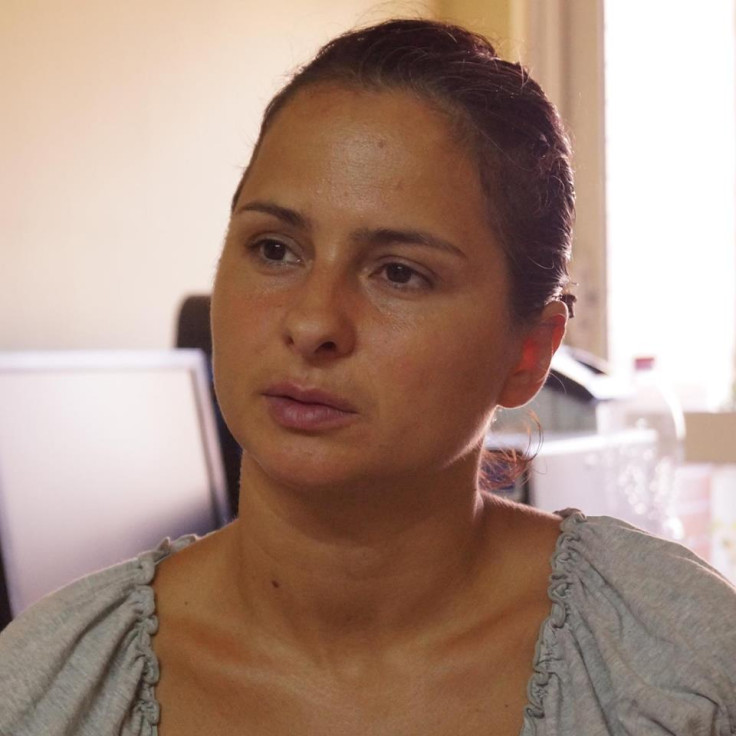Author of 'study' claiming unhealthy lifestyle causes homosexuality says she's been misunderstood
Study author tells IBTimes UK her work has been 'misinterpreted' to say chicken nuggets make people gay.

The author of a controversial self-published 'study' linking homosexuality to unhealthy diets, lack of sleep and stress has told IBTimes UK her work is being misunderstood. However, top scientists have told IBTimes UK that there is no scientific rigour behind her claims.
Rita Strakosha, author of the Modern diet and stress cause homosexuality: a hypothesis and a potential therapy, believes eating disorders and diets rich in carbohydrates can affect people's sexual orientation.
Her unofficial study, published on her WordPress blog, reads: "Homosexuals have more eating disorders than heterosexuals, which usually involve eating large amounts of high glycemic index foods and fat, or eating an imbalanced diet, leaning toward carbohydrates.
"Some studies show an increased rate of obesity among homosexuals. Gay men, lesbian and bisexual women report a higher odds of sugar-sweetened beverage consumption than straight men and women."
Strakosha – who has a degree in Clinical Psychology from Albanian University, according to her LinkedIn page – believes that some reports have misinterpreted her work. "I have noticed that the study has been misinterpreted in some articles to mean that fast food, chicken nuggets make one gay. I have not implied that," she said.
"The study stresses the effect of sugar (and similar high glycemic index food), high fat content in the diet, and stress. My study suggests that sugars have more effect on sexuality than fats, although both impact it."
Strakosha started writing her paper while she was researching on "the effect of sleep on mental health" for her masters thesis.
"I noticed some studies that linked dopamine drugs, serotonin deficiency with homosexuality and I knew from previous studies that these are also linked with sleep problems, so I began to investigate to include it in my masters thesis," she explained.
Strakosha's study further claims that conducting a healthier lifestyle can "decrease and... prevent the return of homosexual attractions."

The study further recommends therapy to solve one's "interpersonal conflicts and other sources of emotional stress through different therapies, including cognitive and behavioral therapy".
Strakosha's work has attracted criticism, with some people calling her work "utter nonsense". Several news websites writing on issues within the LGBT (lesbian, gay, bisexual, and transgender) community have deemed the study as "bizzarre" and misleading the public into thinking that homosexuality is a disease that needs to be cured.
Nicole Prause, a neuroscientist researching human sexual behaviour, told IBTimes UK that Strakosha's work is "inaccurate" and could "harm people."
"She is linking to actual, mostly old research, but then makes logical leaps completely unsupported by the data being cited. The logical reasoning is poor and she is recommending therapies known to increase suicidal thoughts in children," Prause explained.
"It has not been published in peer-review and probably would never pass peer-review, because of the gross scientific errors in it. The university supervising this student should seriously consider whether she will perform ethically as a clinician, if that is her goal. I was a clinical supervisor and would not allow a person like this to say they had adequately completed training with me."
Leading LGBT activist Bisi Alimi, Executive Director of Bisi Alimi Foundation, slammed Strakosha's study as a "badly researched paper."
"[The paper] has shown us how low homophobes will go to prove something that doesn't exist, the idea that this is even allowed to be published says a lot about the desperation," he told IBTimes UK.
More utter nonsense this time published by #Rita #Strakosha who holds an #MPS in Clinical #Psychology#LGBTI https://t.co/gVEoXlob18
— Omar Kuddus (@OmarKuddus) May 30, 2017
However, Strakosha stressed that her study does not imply that homosexuality is a disease.
"The word cure is used for diseases and my study does not extend to the question on whether homosexuality is a disease or not. Therapies are used for diseases, but also as tools for personal development and change in the direction one wishes. So, the question on whether homosexuality is a disease or not is irrelevant for the study," she explained.
She then admitted that she had received several "hateful comments" due to her work. However, she said these are "emotional reactions, which I understand."
"The study opens new possibilities for research in sexology. For example it raises the hypothesis that homosexual males and females have a weak/missing thrusting reflex. I do not know of any study with humans which has investigated this," she concluded.
Strakosha posted her work on her WordPress page in April. "I first published this study as an e-book at Amazon.com. Given the controversy surrounding the issue, I took it down from Amazon and re-published it here for free, so as there is wider access to it," she wrote on her blog.
© Copyright IBTimes 2025. All rights reserved.






















